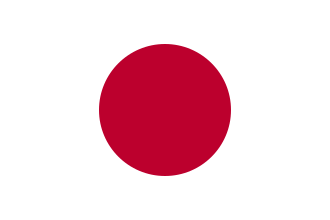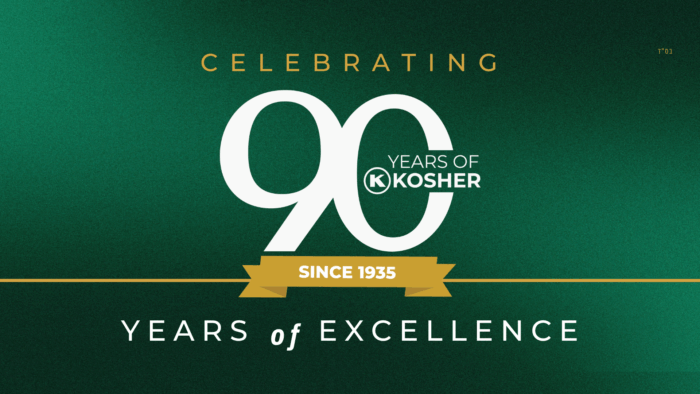
Insights from a Leading Company in Food and Beverage
This April, members of the OK Kosher team, including yours truly, met with two employees at one our most key clients. This company happens to be one of the five largest food and beverage companies in the world. As we sat down with Senior Quality Managers and Analysts in Labelling, we went through the company’s needs and objectives with kosher to see how we could help. This included adding new and existing products to their kosher portfolio.
One thing we discussed was how adding certain products to their kosher line would be beneficial. So today, we’re sharing some valuable insights. Specifically, into the decision-making process for adding new brands and products to a kosher certification program.
Do you work within a large food corporation or conglomerate? Are you in a position of influence in regarding kosher certification? Then read on because this one’s for you.
Why Make More Products Kosher?
One might be wondering why it’s even advisable to bring more products and brands into the kosher lineup in a company.
We conduct these periodic client meetings precisely to exchange high-level feedback with the companies we certify. The goal is to strategize ways to maximize their investment in kosher, and ask where we can make any improvements. Overall, a kosher label has been shown to increase market share – that’s nothing new. Of course, we also evaluate where kosher can make a bigger impact, and brainstorm ways to better utilize and position the certification.
Achieving Kosher Certification for Additional Products and Brands
Given our long-standing relationship with our contacts here, we felt they were the natural first stop in determining what the company’s needs would be in the future with kosher. Kosher certification has been a value of this company very early in their history, so we wanted to make sure to support that value as new products are developed and rolled out.
Along with the company’s Rabbinic Coordinator, OK Kosher Key Account Rep Sara Wayden runs and monitor the kosher program for this company from soup to nuts (literally). Being deeply involved with their products’ certification, Sara identified some key opportunities to expand their kosher program.
She focused on three angles:
Products That Are Already Eligible for Kosher Certification
In this category, Sara identified some longstanding products manufactured in a facility that’s already OK Kosher certified (they have many manufacturing facilities across the US, and several around the world). In order for the company to include these products in their kosher profile, the next step would involve submitting the ingredients and product information to OK Kosher for review. Once our ingredient department gives the green light, these products can join the kosher ranks in their newly approved formulations.
Products That Are Easy to Certify Kosher
We also analyzed some of the company’s products based on their ingredients. From this, we found several that could become kosher certified in relatively few steps. These products were being produced in facilities we didn’t certify yet, but that we could evaluate for the possibility. In this case, a Rabbinic Coordinator would make an Initial Visit to survey the facility, take notes and design a program to certify those products too.
Products with Market Demand for Kosher Certification
In yet another category of kosher-potentials are products that are well worth the investment to certify. That’s usually due to displayed demand in the marketplace. OK Kosher has a strong and loyal consumer base. Aside from phone calls and emails to our Consumer Affairs department, our Instagram page (@okkosher) is active with DMs and comments asking about products kosher consumers want to see certified.
How to Get Corporate Buy-In for Your Company’s Kosher Certification Portfolio
So, with enthusiasm from the Quality team, how does one go about getting buy-in from the departments that actually make the decision about kosher?
Unlike the products themselves, there’s no formula – every company is different in size, structure and culture. You might be the direct kosher contact, in departments like Religious (yes some companies have an entire department for this), Quality or Regulatory. But the decision-makers might be in Corporate, Business or Marketing, for instance.
Find out who needs to buy in to the idea in order to make this happen, and how to best facilitate a conversation with them. It may be as simple as an email or phone call. Sometimes you’ll need to provide more information on why kosher certification is worth it as a project to work on. (Resources like the KosherCertainly blog would – ahem – certainly help! Plus, plenty of other articles in the Learning Center on ok.org). All-in-all, it’s best to create as full a picture as possible for those who need to hear it, as to why kosher is important for the brand.
Order of Events for Getting to the Kosher Finish Line for New Products
What many people in Business, Regulatory or Marketing don’t often realize is the order of the kosher certification process. That, and its importance to the approval process. And vice versa. So while in conversations about kosher, keep the following in mind.
First of all, we recommend running an ingredient evaluation through our ingredient review department ahead of time. That means before label approval is finalized, which is when it seems to normally get brought up. In other words, if a product is in consideration for kosher, send a spreadsheet of ingredients through our client portal, or to your OK Account Rep. This way, we can square away anything your company needs to take into consideration from a kosher standpoint.
Then, discussions can go on as to how to make it happen internally. Once a company is up to label approval, it may be too late to make any formula or process changes. Which means too late for kosher.
(However- regardless of the situation, it’s never too late to reach out. Get in touch with your OK Account Rep, and they’ll be happy to guide and assist you at any stage).
Advocating for Your Kosher Program
Your kosher organization can help your company both identify opportunities, and navigate the process. The kosher certification experts at OK Kosher know your company and products well. Often, they can make all the difference in this regard.
This feels like a good time to mention that OK Kosher helps companies large and small become kosher, optimize their certification, and keep to the highest standards in the industry.
To discuss kosher certification for your company, contact OK Kosher New Certifications.
A note on confidentiality: We guard our clients’ confidentiality with care. No companies or products were mentioned by name in this post. This was intentional, due to propriety.
—
The information presented in this blog post is based on research, general knowledge, and/or the author’s understanding of the subject matter. This blog is provided for informational purposes only and should not be relied upon by the reader or considered as professional advice. For specific guidance on any given topic, the reader should consult a qualified professional in the given field. OK KOSHER DISCLAIMS ANY LIABILITY FOR ANY LOSS OR DAMAGES RESULTING FROM RELIANCE ON THE INFORMATION PROVIDED IN THIS ARTICLE.


 EN
EN  ZH
ZH  KR
KR  BR
BR  ES
ES  IN
IN  IL
IL  JP
JP 



